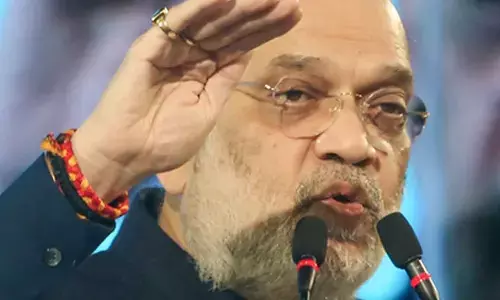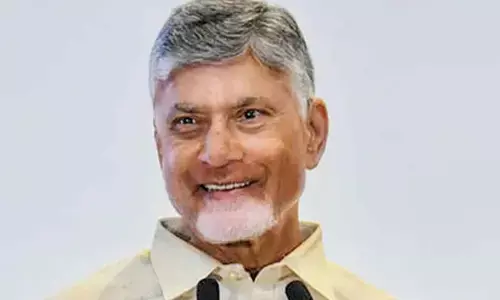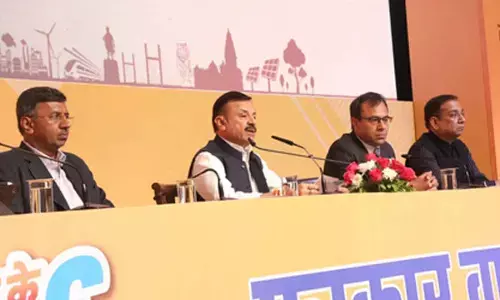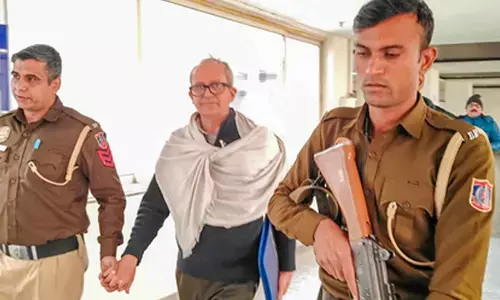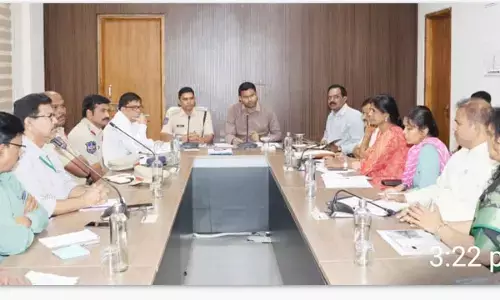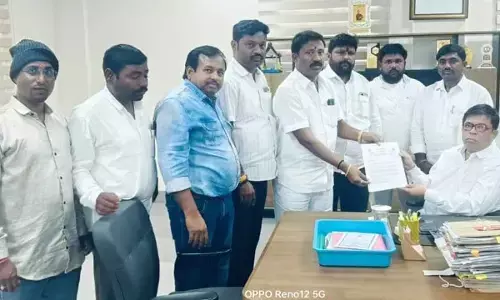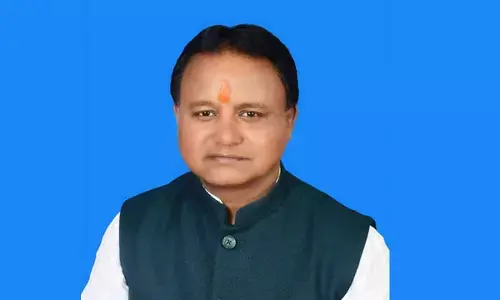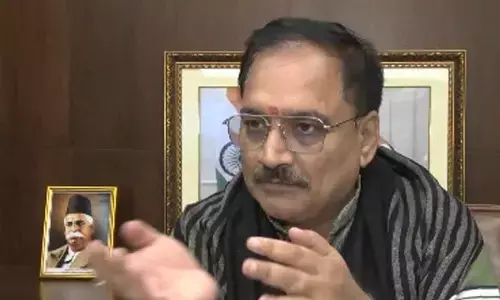AICC Session In Ahmedabad: A Grand Spectacle of Strategic Emptiness
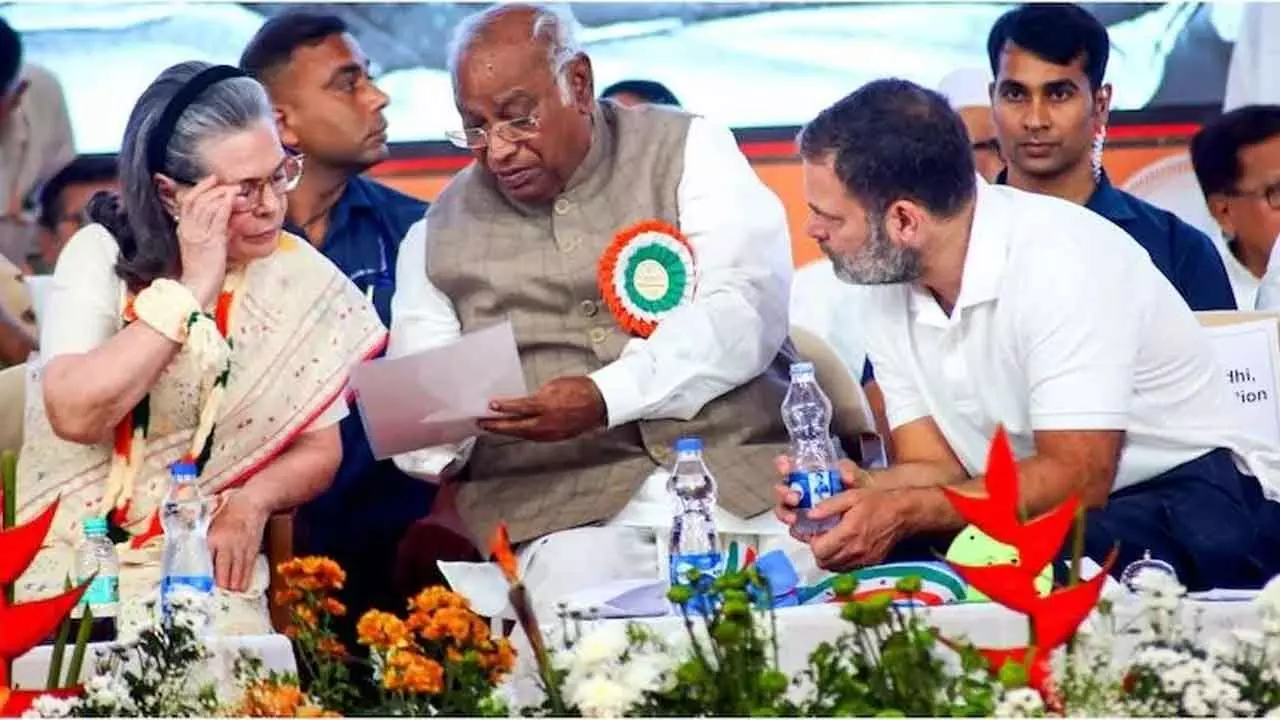
The crucial meet turned into a waste of opportunity
Grassroot workers were neither energised nor engaged, and the event failed to articulate any coherent mission ahead of crucial Assembly elections in Bihar (2025) and Tamil Nadu, West Bengal, and Assam (2026). What could have been an honest introspection and bottom-up reform agenda turned into another tired exercise in Modi-bashing, echoing the same worn-out talking points that have repeatedly failed to resonate with voters. The Congress seems trapped in a loop—rhetorically repetitive, ideologically stagnant, and historically selective
The recent AICC session in Ahmedabad, attended by approximately 160 Congress leaders from across the country, could have been a defining moment—a chance to reboot, reconnect with the grassroots, and craft a bold roadmap to counter the BJP juggernaut. Instead, it morphed into a hollow spectacle that exposed intellectual bankruptcy, strategic vacuum, and dynastic obsession crippling the party.
This two-day gathering was devoid of inspiration and strategic direction. Grassroot workers were neither energised nor engaged, and the event failed to articulate any coherent mission ahead of crucial Assembly elections in Bihar (2025) and Tamil Nadu, West Bengal, and Assam (2026). What could have been an honest introspection and bottom-up reform agenda turned into another tired exercise in Modi-bashing, echoing the same worn-out talking points that have repeatedly failed to resonate with voters. The Congress seems trapped in a loop—rhetorically repetitive, ideologically stagnant, and historically selective. Baseless claims about EVM tampering—never substantiated by evidence—were once again trotted out. The speeches sounded like recycled monologues from previous parliamentary sessions, devoid of innovation or forward-thinking.
Even symbolically, the party missed the moment. In Sardar Patel’s home state, the Congress failed to reclaim his legacy. Instead, it clung desperately to the Nehru-Gandhi mythology. The glaring erasure of figures like C Shankaran Nair—former Congress president, fierce critic of British colonialism, and a man who resigned from the Viceroy’s Executive Council after the Jallianwala Bagh massacre—is emblematic of the party’s selective historical amnesia. Mirroring Rabindranath Tagore’s symbolic rejection of his knighthood.
Nair’s resignation rattled the British and led to the revocation of martial law in Punjab. No Congress Bhavan bears his name; his portrait gathers dust in a forgotten corner of the Kerala office, even as his contributions remain unmatched by many celebrated in today’s Congress. Nair’s bold dissent, his Minute on constitutional reforms, his moral courage in resigning over Jallianwala Bagh, and his legal battle in London after publishing Gandhi and Anarchy—these are stories of valor that could inspire a new generation. That most current Congress leaders are likely unaware of his legacy speaks volumes about the intellectual decline within the party.
This willful ignorance extends to other giants of Congress past—Sardar Patel and Subhash Chandra Bose among them. Some referred to Patel just as the first Home Minister and his pivotal role in unifying the country after independence, particularly by integrating the 565 princely states into the Indian Union including the liberation of Hyderabad from Nizams and not as former Congress president.
The Congress continues to behave as if it singlehandedly birthed the freedom movement, conveniently forgetting it was one part of a much larger, older struggle. The freedom movement predates the formation of Congress party by nearly a century. The Congress was born from the freedom struggle—it did not birth it.
Ironically, the party that invokes the Constitution at every turn seems increasingly disconnected from its own constitutional values—and from those who helped shape them. Worse still, the party remains shackled by a dynastic fealty that borders on the farcical. Chants of “Sonia Gandhi Hindustan, Rahul Gandhi Hindustan” reverberated through the Ahmedabad session, culminating in a speaker ludicrously likening Rahul Gandhi’s political journey to Gandhi’s fight against the East India Company—only now repurposed as a battle against the “West India.” No one blinked. Hyperbole has become institutionalised. More than 90% of the speeches were nothing but recycled slogans and stale clichés. Instead of signaling a revival, the session underlined just how deeply the party has lost its way. It continued its appeasement rhetoric—highlighting caste-based wealth redistribution and opposition to the Waqf Act—without offering any substantive, solution-driven politics.
The absence of Priyanka Gandhi Vadra—both at the session and during Parliament’s Waqf Bill discussions—was glaring. Even as Rahul Gandhi continues his tirades against Ambani and Adani, he conveniently ignores the fact that the Adani Group is constructing and operating the Vizhinjam Port in Kerala—governed by Congress’s political allies. Why the silence? Why the double standards? Rahul represented Wayanad but remained conspicuously mute on the issue. Has Kerala implemented a caste census? Have caste-based job allocations been rolled out there? The party cannot cherry-pick narratives and expect credibility.
In the rare instance of clarity, Shashi Tharoor’s comments stood out as a beacon of reason.
“The Congress must be a party of hope, not resentment; a party of the future, not just the past, a party with a positive narrative, not just criticism.” He added, “I hope we will leave here with a resounding message to the nation—that we are here, we will fight, we will be resolved, we will focus on the future, and we will build a better India for all,” he said. But such voices are drowned out in the din of sycophancy and nostalgia.
The Congress party is no longer just struggling, it is at risk of irrelevance. The Ahmedabad session was not a springboard for renewal, but a mirror held up to a party content with its own decay. Unless it breaks the spell of dynastic politics, reconnects with the grassroots, and resurrects its forgotten heroes with a future-focused narrative, the Congress will not just lose elections, it will lose its place in history.









